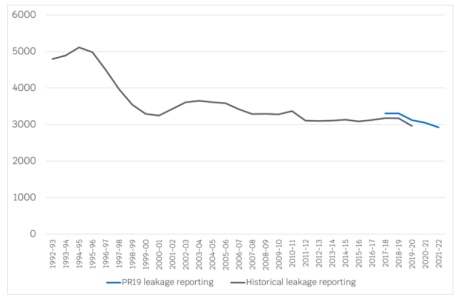AndyWolves
Well-known member
- Joined
- Oct 28, 2010
- Messages
- 18,371
- Reaction score
- 8,887
i agree, it's a £120m dog whistle
I don't want to be an apologist for the privatised water industry but you do realise it was much worse before privatisation?Just after 08:00 on Today: the latest futile sticking plaster to rectify the disgrace that is our privatised water industry destroying our rivers is soundly rubbished. How did we get here? A mystery. 08:26: Ken Baker eulogising the transformative job that Lawson did in privatising the water industry. He sounds posh, so it must be me being thick (the general strategy of the Tories).
I’m imagining your POV comes from first hand professional experience in the sector, so I completely respect it if you see things differently. Mine does too FWIW, but disagreeing amicably is very healthyI’m not going to change any minds here, and I don’t agree with it being privatised, but that’s just totally wrong.
I'm closing the forum down after this bit of breaking newsbut disagreeing amicably is very healthy
A lot of the noise we hear about now is because spills to rivers are actually being measured, prior to 5 years they were even monitored let alone measured. Its fairly obvious the entire system is broken but the only reason the water companies don't spend money to resolve the problems is because ofwat don't let them... they are investment vehicles really - long term spending using debt is absolutely what they want to do (its guaranteed returns for them for 25 years). However, even if they did have the money it will take decades to solve, especially as the easiest solution (pouring concrete) doesn't exactly fit with net-zero.I’m imagining your POV comes from first hand professional experience in the sector, so I completely respect it if you see things differently. Mine does too FWIW, but disagreeing amicably is very healthy

Thats kinda why i usually challenge it on here and in other places. Simplistic nonsense doesn't help anything.The debate about sewage discharges isn’t helped by politicians who don’t have a basic grasp of what is and isn’t realistic. On World at One Ed Davey said he’d start by banning discharges onto Blue Flag beaches. Just like that eh Ed? The only way you’re doing that in a hurry is by turning the water off in those catchments. If it was as easy as he implies has he not considered it would have been done already. Enlarging sewers, building tanks, separating storm water take years and it costs millions. Who’s paying by the way even if it was possible?
Obviously things can be done just as they have been for over 30 years but flippant suggestions about banning discharges don’t help. It would genuinely be easier to stop small boats from France and we all now how the rhetoric on that has worked out.
People in water co work within the constraints they have - I'd include those at the higher level too. Most of the smart people in water are not there for the money - it'd be pretty easy to get paid more elsewhere (ignoring those parachuted in at board level).I’d agree with that. Those who have given many years of professional and / or volunteer service, usually academically informed, to fighting for the improvement of the ecological state of our rivers are - I’m sure - not ones you are tarring with the same brush. I’m afraid that having worked with the water companies at strategic level (as I rather imagine you have too, so no one-upmanship here) it’s my view that their investment and, more pointedly, investor model, is a complete misfit with not only the CABA model of reviving our rivers but the urgent need for action right now if we are to preserve some critically endangered locations. It’s not the companies fault - lots of super smart people working to a particular economic model of course. The double regulator really is a nonsense as well. At present the only way of getting a result is to obtain bathing status, which in turn forces investment. That happens when a bunch of scientists retire to Ilkley basically, but that’s not really a scalable model.
I’d say she’s one of the very few people on the planet that is actually lazier than Johnson.It can't help having Coffey as Secretary of State. She's every bit as lazy and off her brief as Johnson was whenever you gave him some work to do.
